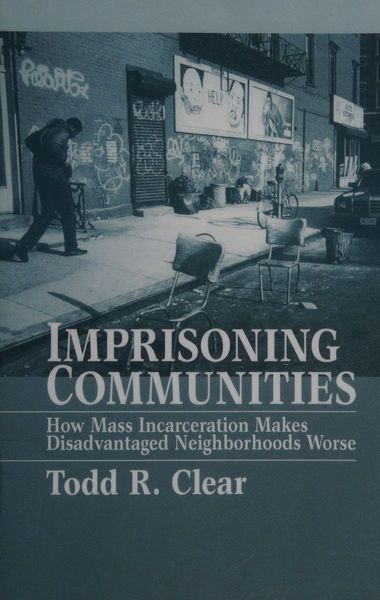
Imprisoning Communities How Mass Incarceration Makes Disadvantaged Neighborhoods Worse
This volume maintains that current incarceration policy in urban America does more harm than good, from increasing crime to widening racial disparities and diminished life chances for youths. The author argues that we cannot overcome the problem of mass incarceration concentrated in poor places without incorporating an idea of community justice into our failing correctional and criminal justice systems. He demonstrates that high doses of incarceration contribute to the very social problems it is intended to solve: it breaks up family and social networks; deprives siblings, spouses, and parents of emotional and financial support; and threatens the economic and political infrastructure of already struggling neighborhoods. Especially at risk are children who are more likely to commit a crime if a father or brother has been to prison. The author maintains that when incarceration occurs at high levels, crime rates will go up; having exactly the opposite of its intended effect: it destabilizes the community, thus further reducing public safety.